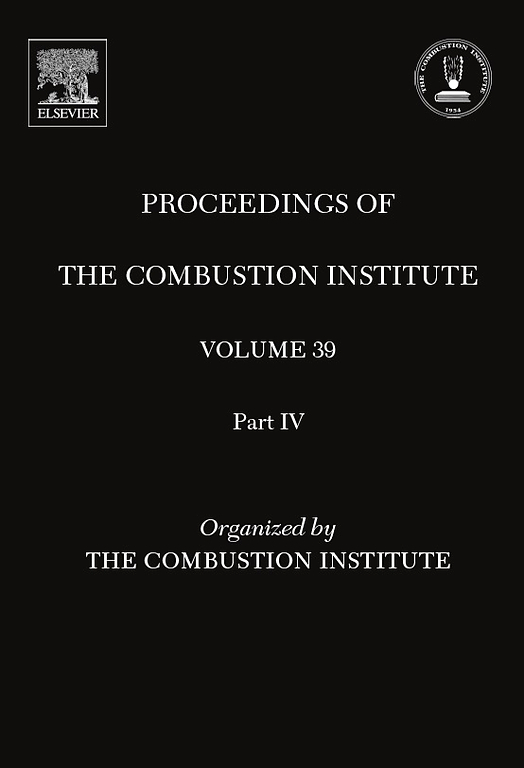Scientific machine learning in combustion for discovery, simulation, and control
IF 5.2
2区 工程技术
Q2 ENERGY & FUELS
引用次数: 0
Abstract
Combustion science is undergoing a transformation, driven by the need to model increasingly complex, multi-scale systems and accelerate progress toward cleaner, more efficient energy technologies. While traditional modeling approaches remain foundational, they face growing limitations under modern demands such as alternative fuels, stringent emission standards, and extreme operating environments. This review explores how scientific machine learning (SciML), which integrates data-driven models with physical constraints, is reshaping combustion research across three central fronts: model discovery, simulation acceleration, and system state reconstruction. We highlight recent advances in parameter estimation, reaction mechanism generation, and interpretable model discovery using tools such as physics-informed neural networks, chemical reaction neural networks, symbolic regression, and governing equation-constrained parameter optimization. For simulation, we examine neural surrogates, operator learning, and physics-inspired architectures that enable fast and accurate predictions while preserving physical fidelity. Finally, we review emerging methods for reconstructing full-field combustion states from sparse data, enabling mutual inference across physical quantities and advancing digital twin development through multi-modal data fusion. Together, these developments demonstrate how SciML is enabling new capabilities for combustion modeling, diagnostics, and control. As the field evolves, continued progress will depend on integrating domain knowledge with scalable algorithms, rigorous uncertainty quantification, and cross-disciplinary collaboration, paving the way for next-generation combustion systems that are intelligent, adaptive, and physically grounded.
科学机器学习在燃烧的发现,模拟和控制
燃烧科学正在经历一场变革,这是由于需要对日益复杂的多尺度系统进行建模,并加速向更清洁、更高效的能源技术发展。虽然传统的建模方法仍然是基础的,但在现代需求(如替代燃料、严格的排放标准和极端的操作环境)下,它们面临着越来越多的限制。本文探讨了将数据驱动模型与物理约束相结合的科学机器学习(SciML)如何在三个中心前沿重塑燃烧研究:模型发现、仿真加速和系统状态重建。我们重点介绍了参数估计、反应机制生成和可解释模型发现方面的最新进展,这些进展使用了物理信息神经网络、化学反应神经网络、符号回归和控制方程约束参数优化等工具。对于模拟,我们研究了神经代理、操作员学习和物理启发的架构,这些架构可以在保持物理保真度的同时实现快速准确的预测。最后,我们回顾了从稀疏数据重建全场燃烧状态的新兴方法,实现了物理量之间的相互推断,并通过多模态数据融合推进了数字孪生的发展。总之,这些发展展示了SciML如何为燃烧建模、诊断和控制提供新的功能。随着该领域的发展,持续的进步将取决于将领域知识与可扩展算法、严格的不确定性量化和跨学科合作相结合,为下一代智能、自适应和物理接地的燃烧系统铺平道路。
本文章由计算机程序翻译,如有差异,请以英文原文为准。
求助全文
约1分钟内获得全文
求助全文
来源期刊

Proceedings of the Combustion Institute
工程技术-工程:化工
CiteScore
7.00
自引率
0.00%
发文量
420
审稿时长
3.0 months
期刊介绍:
The Proceedings of the Combustion Institute contains forefront contributions in fundamentals and applications of combustion science. For more than 50 years, the Combustion Institute has served as the peak international society for dissemination of scientific and technical research in the combustion field. In addition to author submissions, the Proceedings of the Combustion Institute includes the Institute''s prestigious invited strategic and topical reviews that represent indispensable resources for emergent research in the field. All papers are subjected to rigorous peer review.
Research papers and invited topical reviews; Reaction Kinetics; Soot, PAH, and other large molecules; Diagnostics; Laminar Flames; Turbulent Flames; Heterogeneous Combustion; Spray and Droplet Combustion; Detonations, Explosions & Supersonic Combustion; Fire Research; Stationary Combustion Systems; IC Engine and Gas Turbine Combustion; New Technology Concepts
The electronic version of Proceedings of the Combustion Institute contains supplemental material such as reaction mechanisms, illustrating movies, and other data.
 求助内容:
求助内容: 应助结果提醒方式:
应助结果提醒方式:


